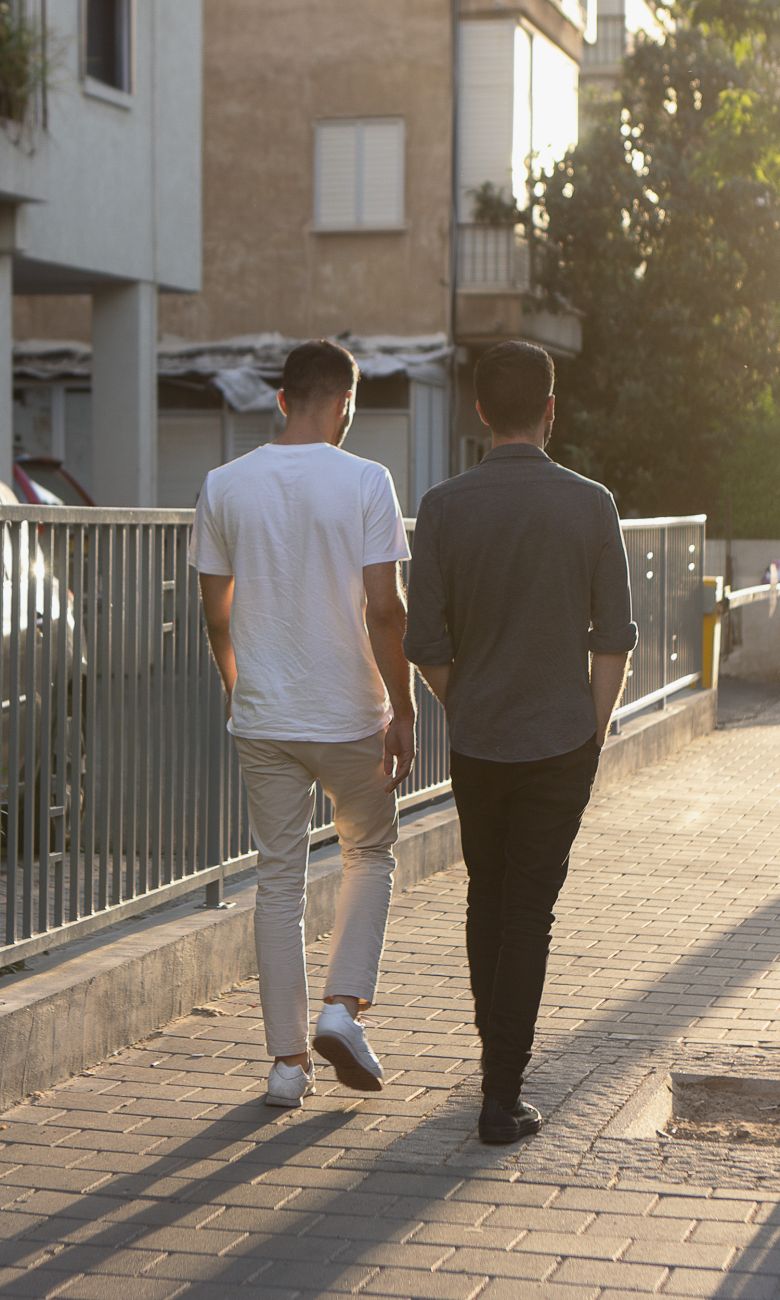
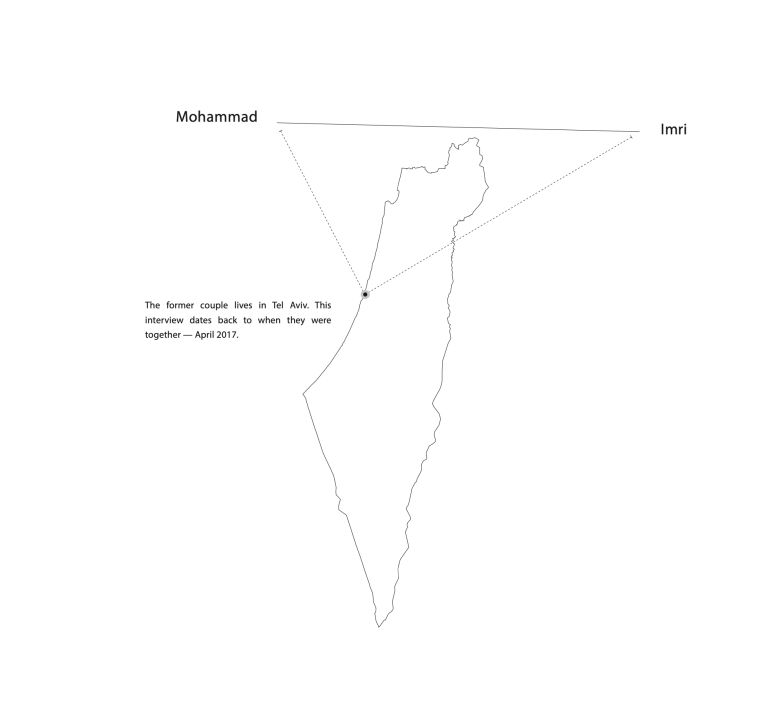
Imri, 33: A few years ago, if somebody had told me that the name Mohammad would be on my apartment door buzzer and my voicemail greeting would say, “You called Imri Kalmann and Mohammad Wari,” I wouldn’t have believed it. The name Mohammad is a symbol of Islam. It’s the name of the prophet in whose honour the magazine office of Charlie Hebdo1 was shot down. It’s the most common name in the Arab world and in Israel too — only amongst Arabs. But when Mohammad stepped into my life, I instantly un- derstood it was serious. It still is.
When I first told my family my partner’s name, I had to deal with the obvious surprise. They are used to being taken aback by my decisions, but this one was different. My par- ents were happy that I was in love but afraid that the relationship would complicate my life. Most of their fears disappeared after they met Mohammad in person. He is one of those people you fall in love with at first sight. When my mom saw me with him, she said, “I’ve never seen you so happy.” All of my relatives, including those in the US and Holland, agree we look wonderful together. My grandmother, who lives in Amsterdam, has a wall covered in pictures of all her grandchildren. After meeting Mohammad, she asked me to send her a photo of us for the collection.
It took my colleagues a little more time to accept my choice. They were concerned about my well-being and career. For the past two years, I’ve been closely engaged in politics. I’m a member of the Israeli LGBT organisation, Aguda, and the left-wing political party, Meretz. Even to supporters of these groups, an Arab-Jewish couple in Israel is of special interest. Sometimes, this attention can be positive: some voters see us as a symbol of unity, peace, and change, but others may consider such union as a betrayal. Thoughts about publicity and its impact on our personal lives also worry me.
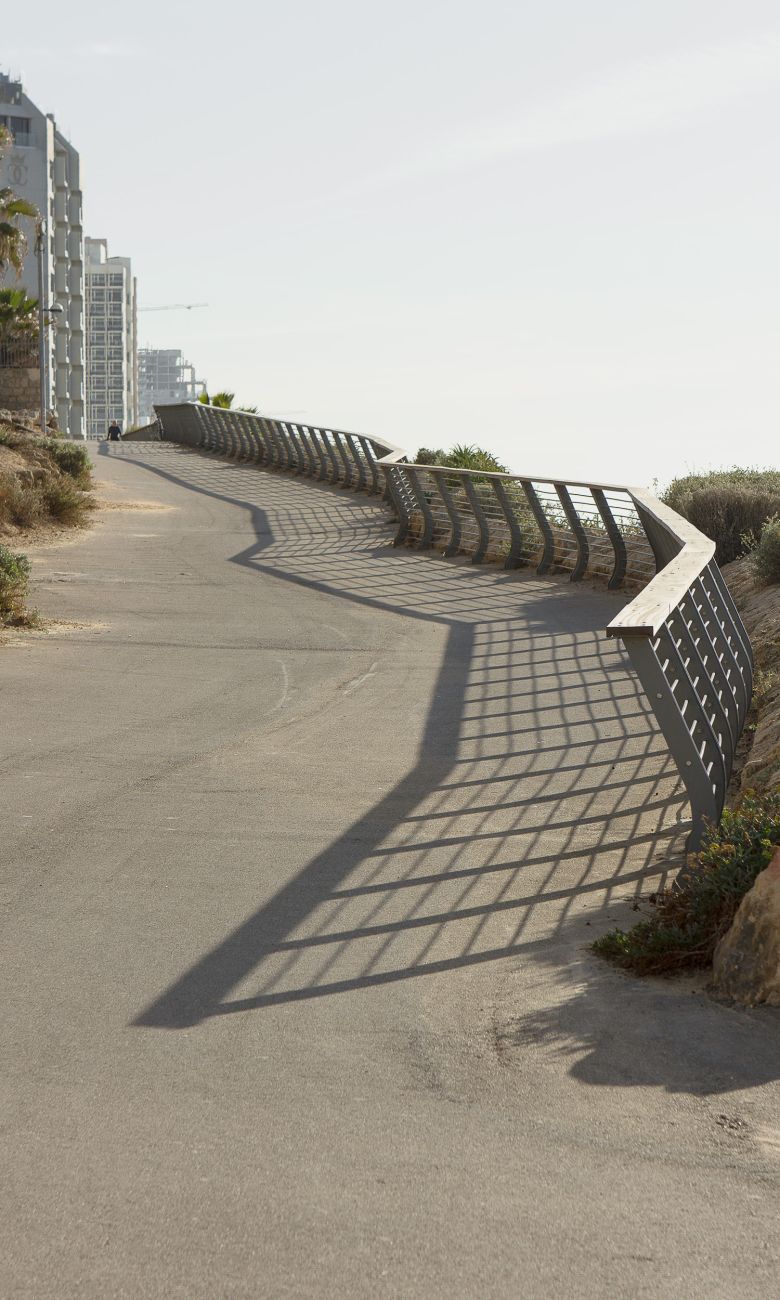
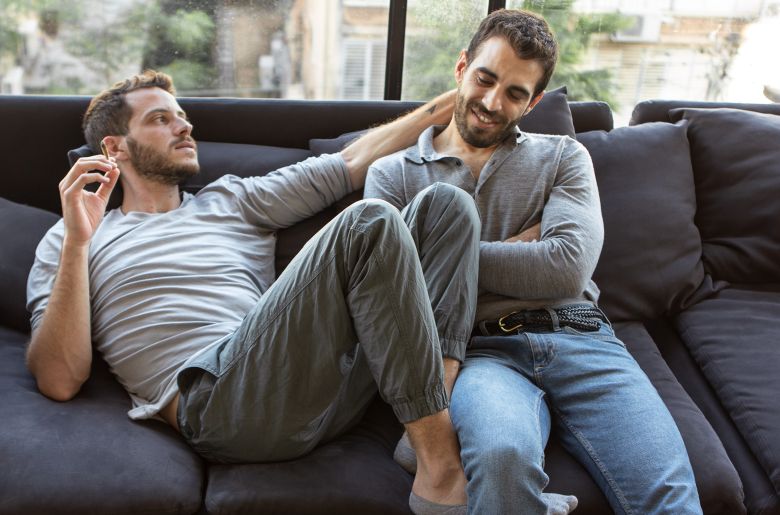
To what extent will the public’s different opinions disturb our family life? So far, we’re managing well. My colleagues notice and maintain a harmonious relationship with Mohammad. At this stage, my and Mohammad’s cultural differences only strengthen our bond.
A couple of years ago, I realised my connection with Judaism and began seeking my own religious path. I was worried this might negatively affect my relationship with Mohammad. If we put religion at the forefront of our life together, it probably would have. Instead, we try to compromise. A few days ago, we organised a wedding for ourselves. In Israel, we can’t officially get married, because Mohammad is an Arab and because we are gay. I wanted to wear a kippah2, but Mohammad didn’t like this idea. I kept the kippah in my pocket — it was enough to know it was with me. Once, I wanted to hang a mezuzah3 at the entrance of our apartment, but this custom is alien to Mohammad. We ended up inserting a photo of us inside the scroll, so the mezuzah would sym-bolise our love, not religion.
Another sensitive topic is language. I’m used to thinking and speaking in Hebrew and Dutch. Jewish people use a lot of words to formulate their thoughts and feelings. Arabic feels more concise. To express the same thought, I need two sentences, while Mohammad needs two words. I don’t know Arabic yet, but I’ll learn; it’s the language my beloved uses to communicate with his family and friends. We’re planning to have children and raise them bilingual. It’s important to understand them — whichever language they speak.
In a political sense, it’s much harder to meet halfway. Don’t get me wrong: we are against violence and oppression. On some issues, we adhere to similar political views. Recently, we found out that both of us participated in the Council of Europe Youth Peace Camp4.
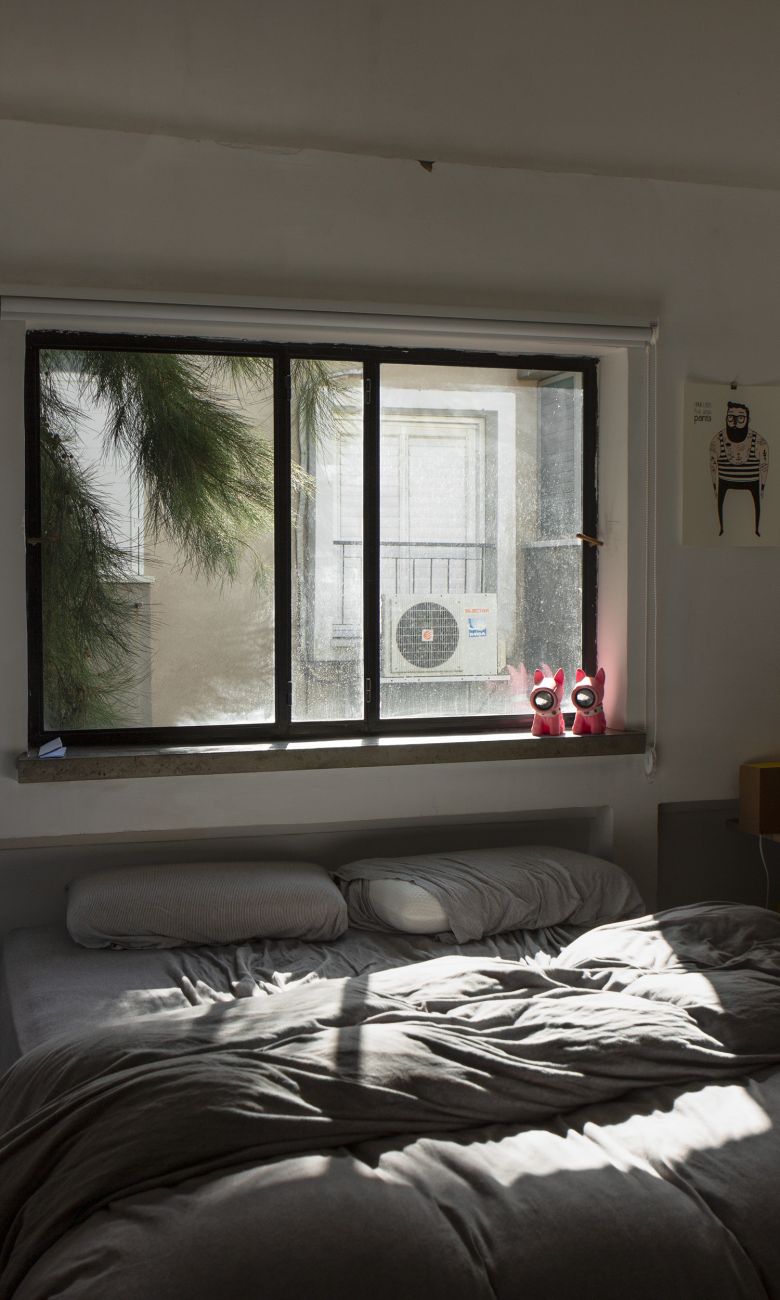
This means we grew up in families who gave us opportunities to look at the conflict from different points of view. It’s often easier for me to discuss politics with Mohammad than with some Jewish people.
Still, Mohammad and I grew up in completely different cultural and political realities. Just recently, we spoke about the Israeli border police, Magav. Despite the fact that I condemn some of the unit’s actions, I consider them as my people. I’m not afraid of them. For Mohammad even their uniform causes painful associations. They’re on the other side of the barricades to him. During these discussions, we learn to better un- derstand one another’s upbringings. We were — and unfortunately still are — on different sides of the conflict.
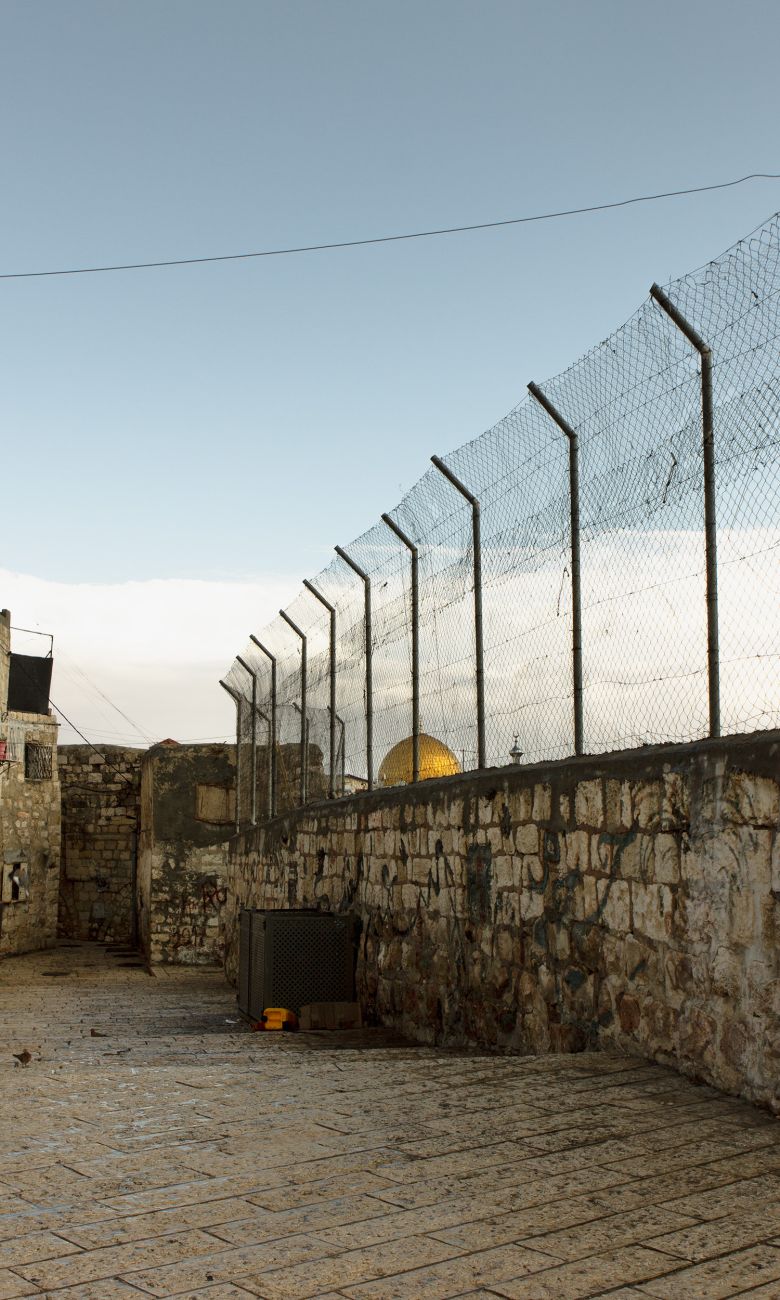
Mohammad, 33: I grew up in Jerusalem. I went to an Arab kindergarten and school. As absurd as it sounds, growing up, I thought that I was the only gay Muslim in the whole world. In my Arab environment, there weren’t any openly gay people and there wasn’t information for gay people either. Now, I understand there are no less gays in the Arab world than amongst other nationalities. And just to admit this fact is quite frightening.
Predominantly Jewish, Tel Aviv is much more progressive than Jerusalem. When I moved here, I started going to gay clubs, getting involved in LGBT parties, participating in parades. That’s how I met Imri — I saw him dancing on a truck at Tel Aviv Pride. I asked a friend of mine, “Do you know him?” It turned out that he did. Later, I found Imri on Facebook and it all began.
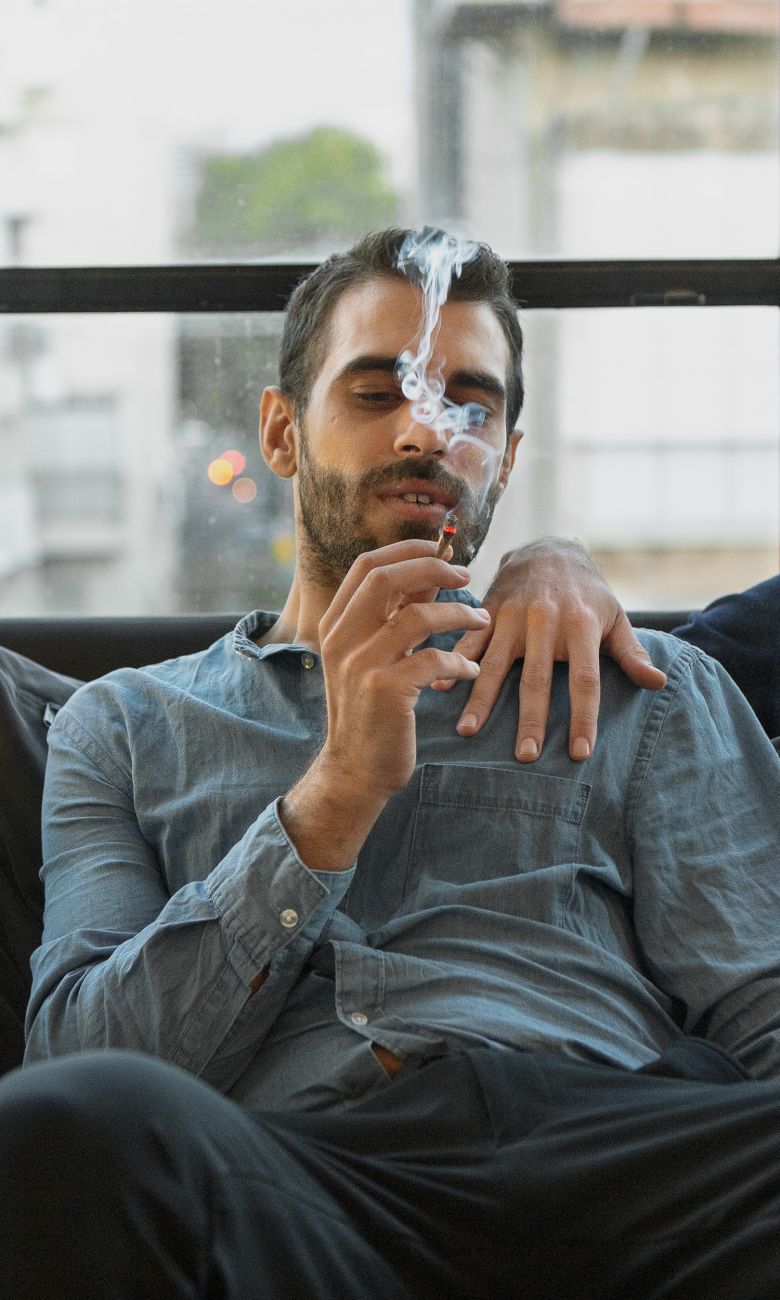
When I started dating Imri, I was sure I started a relationship with a non-religious person. I’m not associated with any religion. I believe that the values inspired by the religion and culture each of us has grown up with aren’t a free choice. This is what has been formed for centuries and has been built into us for many generations. It’s important for me to choose and form my own values. That’s why Imri’s religious search sometimes bothers me. He, of course, can practice what he wants, but I can’t share those practices. I didn’t want a religious text — mezuzah — that I don’t believe in hung at the entrance of our apartment, but we found a compromise and the scroll’s new meaning doesn’t bother me.
Imri’s family once invited me to Passover Seder5. They behaved very tactfully. While read- ing the Paschal Haggadah6, his relatives cut out the part which states that Jews are God’s chosen people. I was truly touched by this gesture. Overall, I have excellent rela- tions with Imri’s relatives. The only difficulty is the language. We communicate in Hebrew, and this makes our life together a little easier for Imri and a little more difficult for me.
It’s no secret that Arabs don’t have the same rights in Israeli society as Jews. It’s a tough dichotomy of weak and strong, intimidated and protected, discriminated and privileged. Once, I took a break from my main job as a programmer and tried to find a job at a cafe. I’m fluent in Hebrew, Arabic, and English. Ten minutes into my interview, an employer was ready to hire me, but their certainty vanished as soon as I said my name. In the end, I didn’t find a job at a cafe.
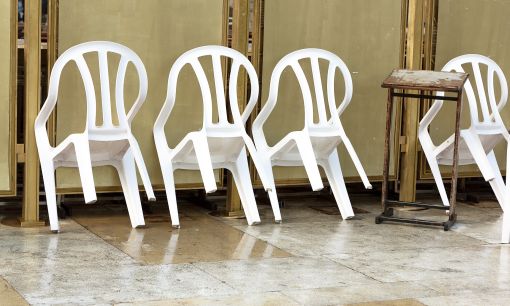
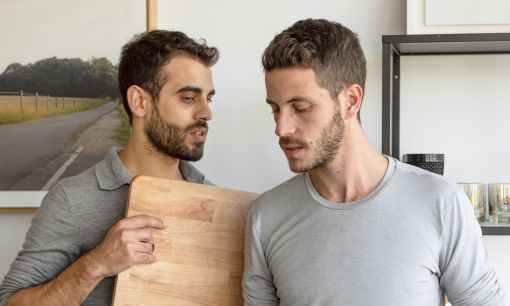
Every time I fly out of the country, border guards interrogate me. The examples are endless — there’s a big difference in attitude towards Jews and Arabs. But I, a minority, have a choice: I can spend my life complaining about the situation, or I can decide that I’m an equal individual and make an effort to create a worthy existence. I learned Hebrew, studied programming, found a good job, and I feel quite well in Israeli society. Life in these two cities — Jerusalem and Tel Aviv — gave me the opportunity to get to know the perspectives of both Arab and Jewish Israelis. Now, I feel at ease in both con- texts. If somebody asks me who I am, an Israeli or a Palestinian, then, frankly speaking, I answer what suits the situation best.
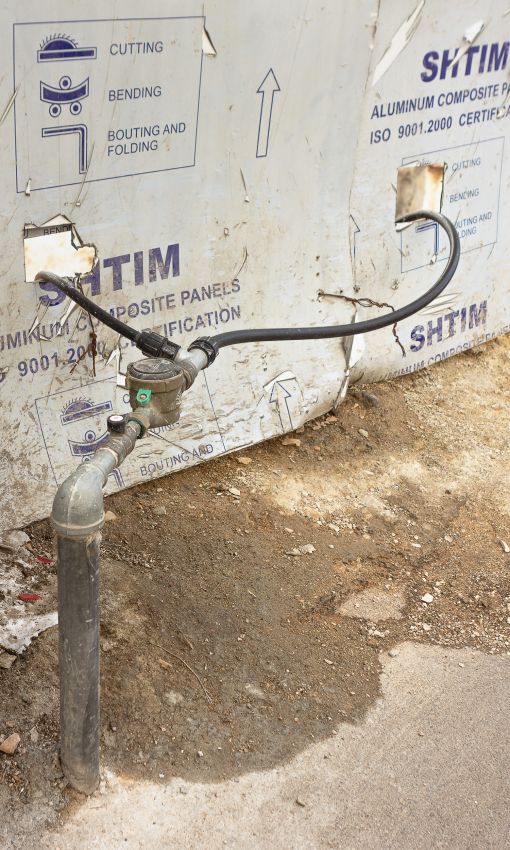
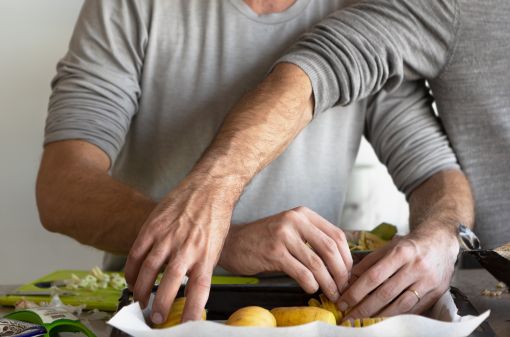
All of my Jewish friends know Imri already, but only two of my Arab friends know about his existence. The most noticeable difference between our cultures is how many peo- ple feel about gay people. For most Israeli Arabs, Imri’s religion causes less emotions than my sexual orientation. It would be difficult to have an interview with an Israeli journalist. I would be afraid that my family or friends would read it. The article could also cause them problems.
I came out to my parents about six months ago; I told them that I’m dating Imri. My mom said that she isn’t interested in the religion of my partner, however she is in the gender. My dad doesn’t talk to me anymore. Once in a while, I phone my mom and try to tell her about Imri. They’ve seen photos, but neither of them are ready to meet him yet. Out of my entire family, only my younger brother attended our wedding. He acts as a bridge between my family and me. I don’t lose hope, though. One day, they’ll see how happy I am. One day, we’ll have kids. Then, I hope they’ll accept us.
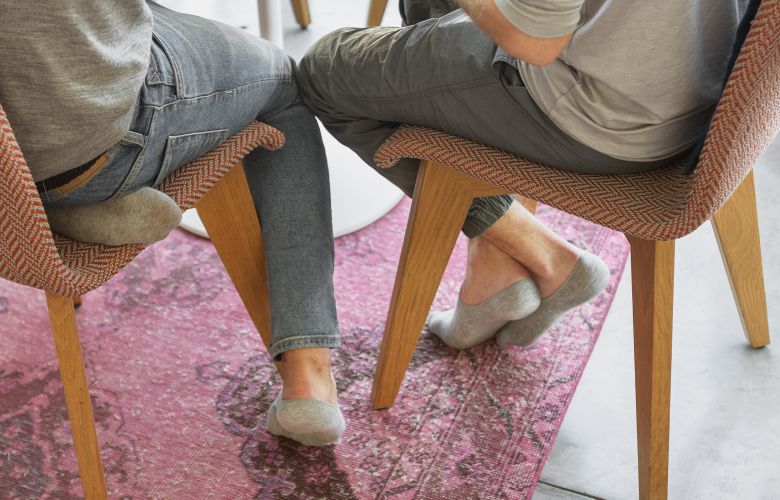
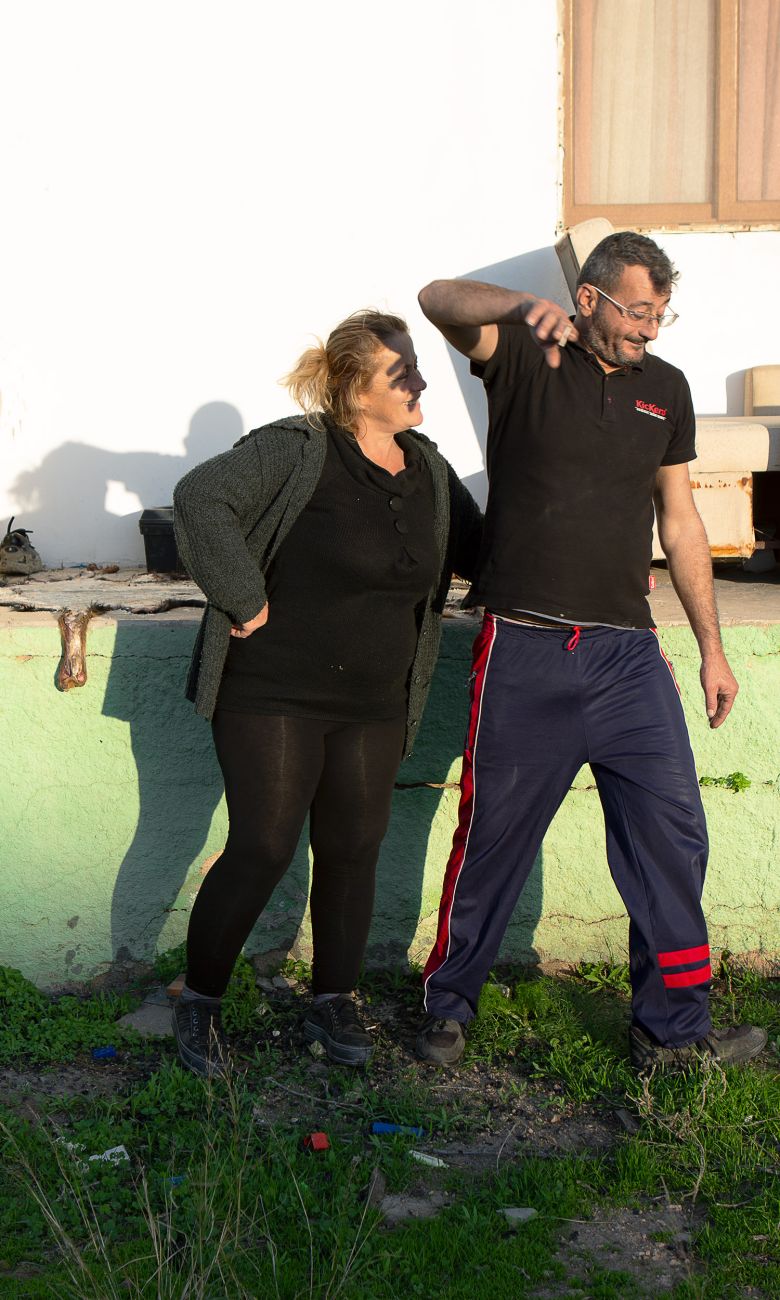

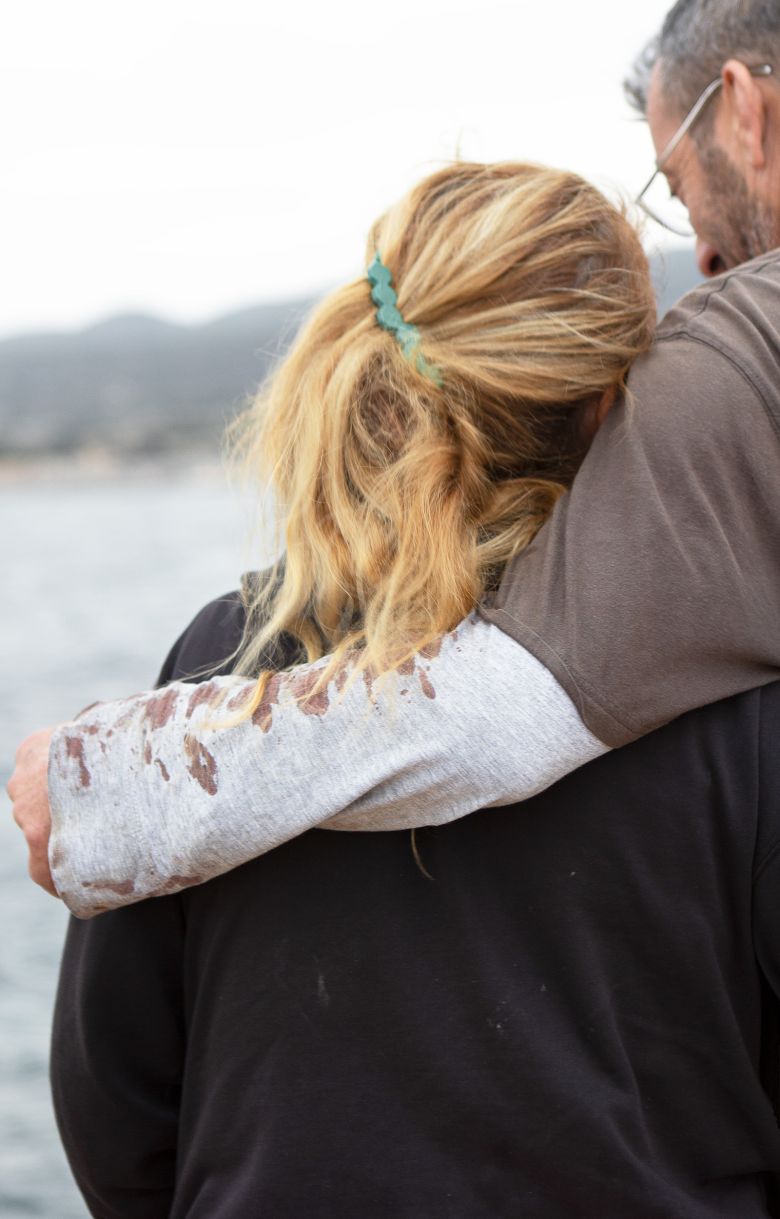
Hatice, 47: Banayis7 and I grew up in the same village. He said that he noticed me when I was a child but was afraid to approach me. Communication between Greek and Turkish Cypriots was unthinkable back then. Instead, we would gaze at each other, but until the age of 35 never spoke.
One morning, our mutual friend and I had coffee together. Banayis took a chance and sat down with us. He glanced at me with a discreet greeting but spoke mostly to our friend. Later, Banayis told me that he wanted to do this many times before, but his heart would stop when I entered the cafe. It wasn’t until then that he built up the courage to say his humble hello. Since then, each day before work, we have invited each other for coffee.
A few months later, my brother found me a job in Famagusta8. When I told Banayis the news, his mood shifted. He seemed sad and I knew that he wouldn’t ask for my number, so I took matters into my own hands: I wrote my number on a napkin and handed it to him. From then on, every day, we would call each other.
At that time, Banayis was still married, but he didn’t live with his wife — they were in the process of separating. He had two sons with his former wife. Before my appearance, Banayis’ family accepted this decision. But the situation changed dramatically when they found out about my existence. As Banayis likes to say, the 1974 war was nothing compared to their reaction about our relationship. A Turkish relative wasn’t part of their plans, and they became insistent on Banayis’ reunion with his wife, who changed her mind about agreeing to a divorce.
Banayis’ sister-in-law invited me to meet with her. Once I arrived, she attempted to dissuade me from continuing my relationship with Banayis. She said that he was an alcoholic, that he was lazy. I told her, if this is true, I would earn money for both of us, that I was in this for love and not what Banayis could offer me financially. After that, she moved on to threats: my brother didn’t know about our relationship — and she would be sure to tell him.
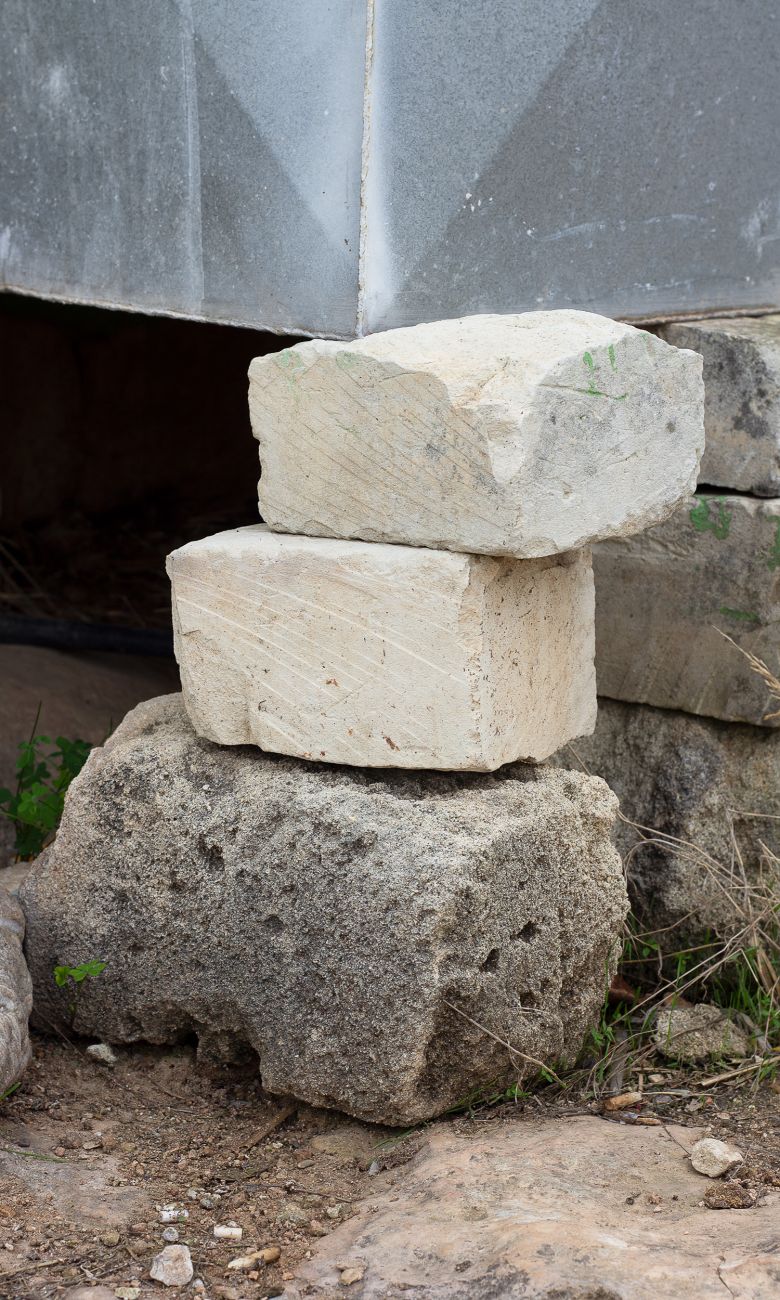
After this incident, I went to my parents. Only my mother was home. I told her about my relationship and she reacted calmly. Half an hour later, my brother came home — Banayis’ sister-in-law had already told him. My brother made it clear that he would never accept my relationship with Banayis. And just like that, my mother changed her mind. My father stopped speaking to me altogether.
Banayis tried to improve his relationship with my family. He came to my parents to ask for my hand, but my father flatly refused. After that, everything changed. I was still living at my parents’ house. Before my relationship with Banayis, I could freely walk around the village, drink coffee at neighbours’ houses, go by myself to the local market. But when my parents found out about Banayis, they suspected that I would meet him and didn’t let me leave the house.
A similar situation occurred at Banayis’ home, where he lived with his mother. Banayis and I, a 40-year-old couple, were locked up by our parents, so we couldn’t see each other. A few months later, Banayis rented a house and said, “If you love me, move in with me.” And I did. In our culture, if a woman leaves her parents’ home for a man, she can’t come back. The exception is if a husband asks for a divorce, as was the case in my previous marriage. There are no other exceptions; my decision was irreversible. My family took it as the greatest insult. They said that in the eyes of their neighbours, the house was covered with eternal shame. My parents didn’t even feel comfortable going into the village.
When I moved in with Banayis, the world broke into two universes: peaceful and harmonious at our house, hostile and aggressive outside of it. I was afraid to go out. I didn’t even dare to open the curtains. Once, I pulled myself together and went to the market, where I ironically ran into Banayis’ ex-wife. She started to scream at me. I froze. A passer-by stood up for me. I was in such shock that I don’t even remember what they said. Later, they took me home.
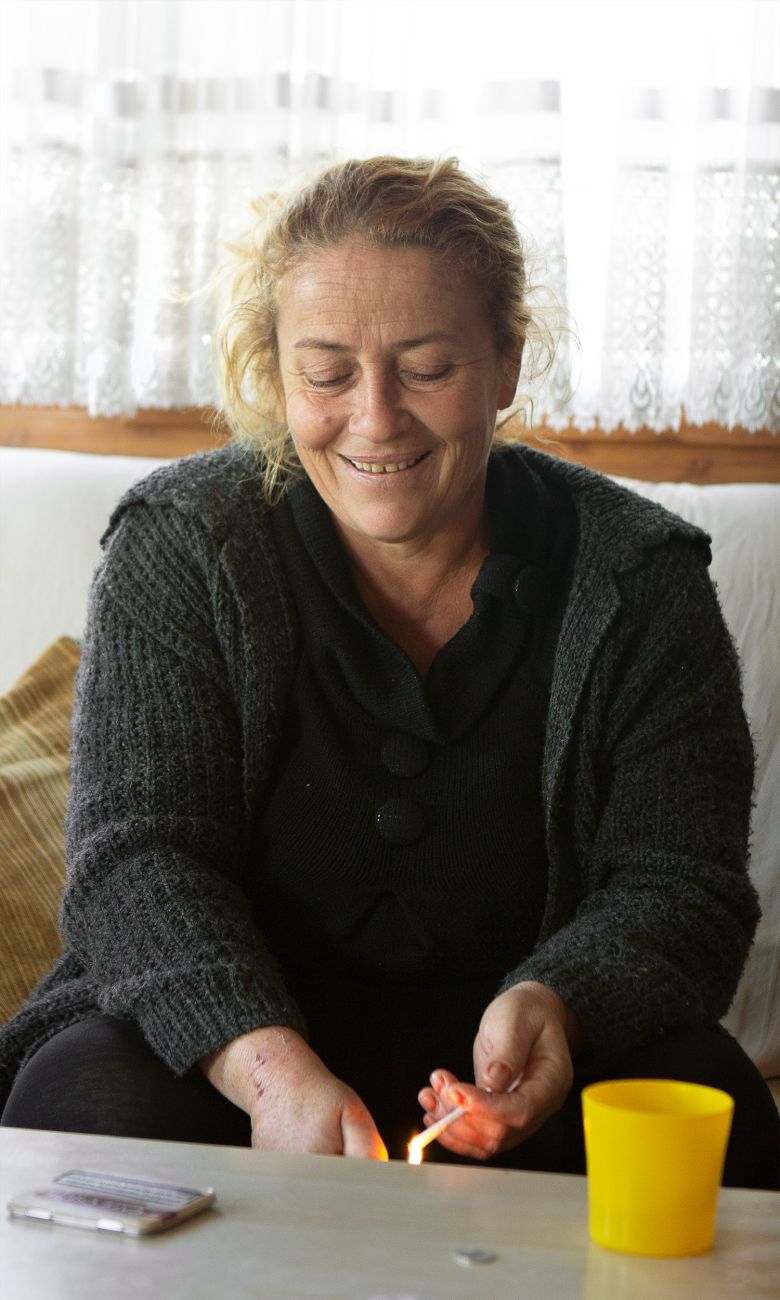
That day, I tried to commit suicide — I swallowed a handful of pills. I thought that through my death peace would finally come to my family and Banayis’ relatives. I was in a coma for five days. It wasn’t an easy time for Banayis — since he is a Greek Cypriot, he was immediately suspected of being involved in my failed suicide. When I woke up, an investigator came to ask about Banayis’ role in the incident. I explained this was my way to save our families from shame.
Once I got out of the hospital, I stopped taking pills, even birth control. A few months later, at 43 years old, I became pregnant. At first, I was terribly ashamed of my preg- nancy — my age seemed to intensify the scandalousness of the situation. But Banayis and my daughter from my previous marriage were so happy with the news that I gave up the idea of an abortion. Now, I feel that I’m still alive thanks to our son, Banayodis. After his birth, I no longer freeze from people’s hatred; I can stand up for myself.
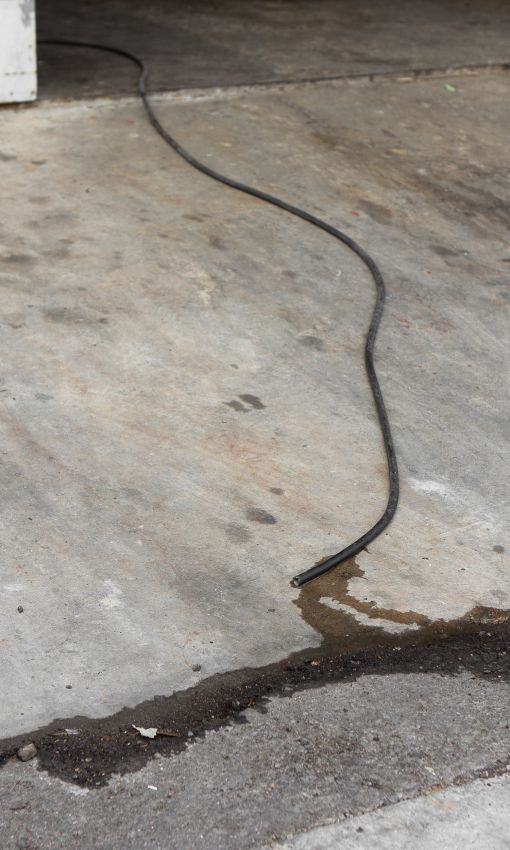
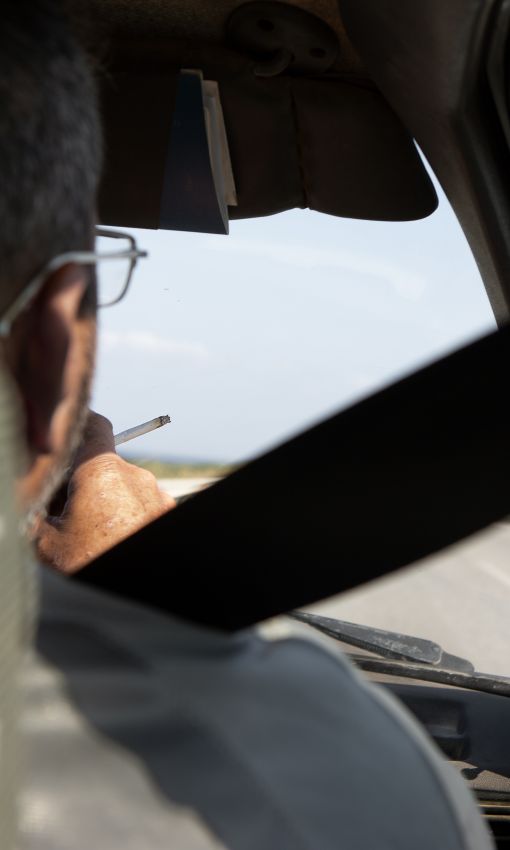
In a big city like Lefkosa9, it might have been easier for us. Perhaps people would have been a bit more open-minded. Our village, Sipahi, is stuck in the mentality of the 60s. But we have more chances to survive here. Banayis didn’t receive education because of the war; it was hard for him to find a job. He earns money by taking Greek Cypriots to a school in a neighbouring village. He also receives benefits from the government of southern Cyprus for not leaving northern Cyprus: 370 euros per month and a food basket — it’s a big help. This, unfortunately, is the fate of most Greek Cypriots in the north. They either don’t work or have multiple small jobs. Those who’re younger go to work in southern Cyprus. People our age and older are fighting to survive here.
Greek Cypriots also don’t have the right to buy a house or land in northern Cyprus. They can live in family houses that belonged to them before the war, but they can’t buy new property. Banayis’ sister has savings from her divorce. She wanted to buy a house in Famagusta, but when it came to registering the property, the offer was cancelled. Her boyfriend is a Turkish Cypriot, but she is afraid to put it under his name, because family pressure might increase and could cause them to separate. Banayis’ sister is a beautiful young woman, but she looks as if her shoulders carry the weight of the whole world. Her ex-husband forbade her to communicate with their six children because of her relationship with a Turkish Cypriot. Her boyfriend was affected as well. He couldn’t be fired, but his boss made it clear that his chances to climb the career ladder were gone.
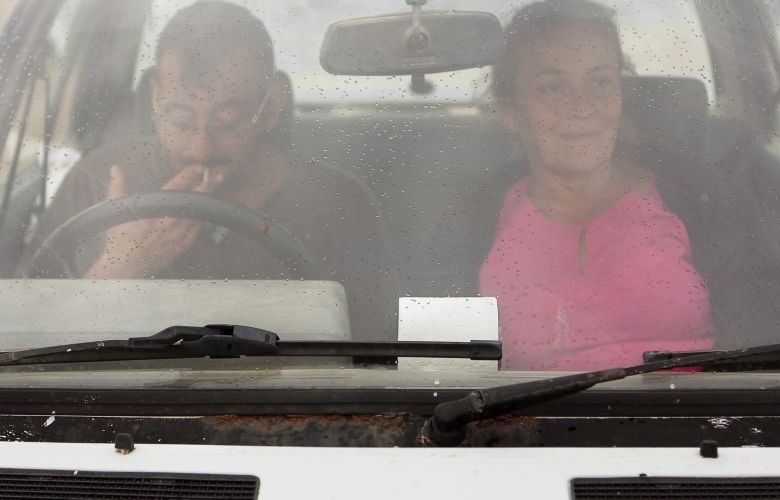
We can’t expect help from outside of Cyprus, either. Not long ago, UN representatives came to northern Cyprus to check the living conditions of Greek Cypriots. But no Greek Cypriot spoke about their hardships, because they were frightened the Turkish government would punish them. The Greek Cypriot school Banayis works for made sure that he didn’t give an interview — they threatened to cut his salary in half if he did. When I tried to speak out, Greek Cypriots protested. They said, “Why would a Turkish woman stand up for us?”
I believe that the greatest fear of Greek Cypriots on this side of the Green Line is the Turkish police. If a Greek Cypriot doesn’t have a good relationship with a Turkish Cypriot police officer — let’s say, they don’t invite them for coffee or a meal at their house — then the officer will cause problems. When I had just moved in with Banayis, a policeman called him with accusations of kidnapping. I intercepted the call and said, “What kind of abduction is this? I’m 41 years old. I got into the car and came to this house voluntarily. We haven’t done anything illegal — two single adults decided to live together. What business do the police have in this?” He didn’t call again.
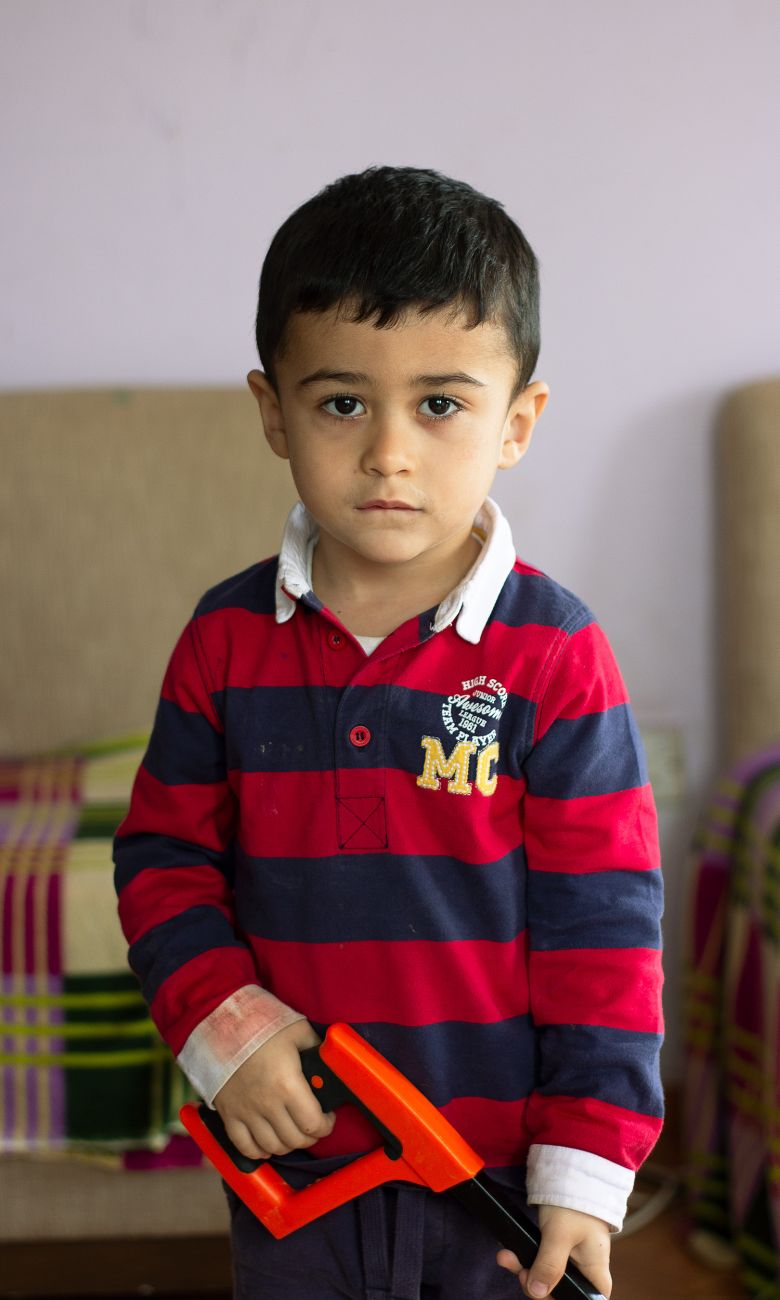
The registration of our marriage was also quite a struggle. We followed all the rules and applied at the registry office. On the day of our appointment, an employee refused to register our marriage, allegedly due to a lack of documents from southern Cyprus. I was devastated — why didn’t they tell us about this special rule for Greek Cypriots earlier? I took the documents we had, including our passports and residence permits, and tore them into hundreds of pieces. Fortunately, my husband made copies of all the papers before going down there. In another office, we were assigned a date immediately after Banayodis’ birth, so I couldn’t go. On October 6th, 2014, the wedding finally took place in southern Cyprus.
We also baptised Banayodis there. When we came to the priest, he turned to my hus- band and said, “You, Banayis, want to baptize your son, that’s clear. But let’s ask Hatice, a Muslim, what she thinks.” When I said that I had nothing against it, Banayodis was baptised for free. “This is my gift,” the priest told us.
Banayis knows that I read the Koran, that I pray. I also accept his Christian traditions. When Banayodis reaches adulthood, he will choose his own religion.
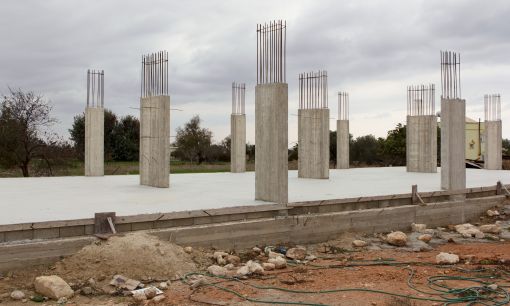
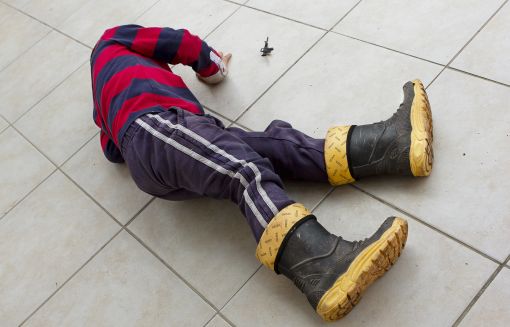
Why did I agree to baptise him then? Because baptism gave Banayodis new relatives, a godmother and godfather. I have no one now, except for my daughter and husband. We aren’t young. If something happens to us, Banayodis will have people that will take care of him.
Banayodis goes to a Greek school, because I don’t like the education system in Turkish schools. So far, he hasn’t had problems with his classmates or teachers. Every day after school, Banayis checks our son’s body for bruises or scratches. Several times a week, I go to the village where Banayodis’ school is located and stand beside the window of his classroom — I want to make sure that he’s treated fairly like the other kids. So far, everything is going smoothly, but the fear for our son never really leaves us. Once, there was a big scandal in the Greek school Banayodis goes to. One of the teach- ers said something unpleasant to a bi-communal child. I still don’t know what exactly, but his mother transferred him to another school and wrote a letter to the director, a Greek Cypriot. The teacher was fired.
Despite all the difficulties, we stayed in this village because of Banayis’ sons. When I moved in with Banayis, they stopped talking to him. This lasted almost two years. He suff- ered greatly. Banayis never told me, but I noticed that he couldn’t sleep at night. When he saw his sons on the village streets, he would tell me with a smile, “We are here for such moments.”
Now, his younger son visits us regularly, and the older one comes once in a while — his family doesn’t know. When the youngest son first started coming to our house, he acted rudely towards me, telling me repeatedly that I shouldn’t be with his father.
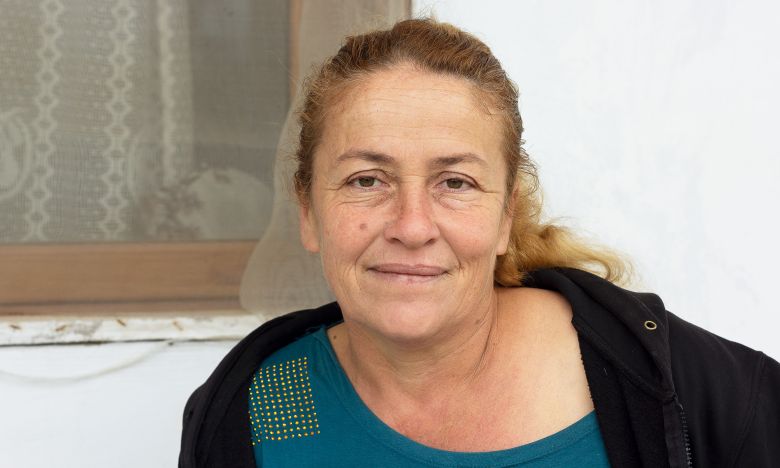
This has changed completely. Once, he even confessed that he would like to have such a mother like me, because I understand him like no one else. Banayis’ eldest son is a different story. From the beginning, he was courteous, but we didn’t develop a close relationship.
To be honest, I expected rejection and troubles from both our families. Except for one person — Banayis’ father. Before I began dating his son, we used to be close friends: he was my neighbour for 40 years. He came to my work every day to have a cup of Turkish coffee with me, even when he had a cold. Each time, he joked that he loves me more than Banayis, and that he’s busy looking for a husband for me. When I found one, he didn’t like it. This perhaps was the most painful blow. Now, he doesn’t even say hello and turns away if he sees me on the street.
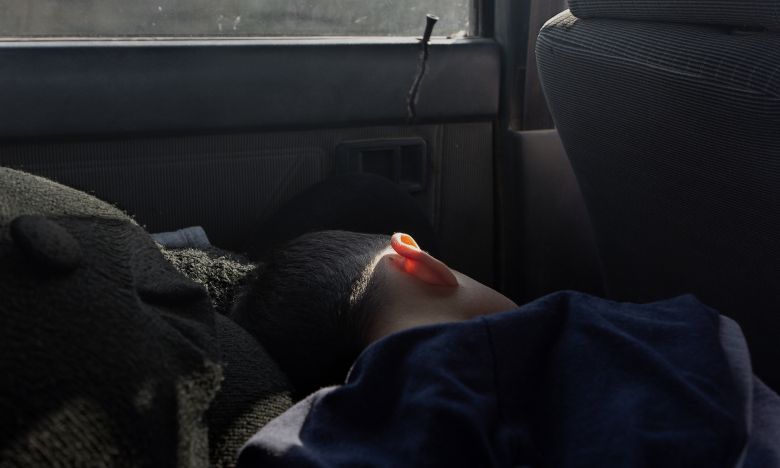
My family still doesn’t talk to me. My mother called me once, when my father was about to die from cancer. I grabbed Banayodis and started my car — I wanted to introduce him to his grandfather before he passed away. When we were on our way to the hos- pital, my mother called me saying that we should turn back, because my father doesn’t want to see us. He ended up pulling through, but I don’t think Banayodis will ever meet him. If my father refused to meet his grandson even on the verge of death, what would make him change his mind now?
I still don’t know where we have found the strength and courage to cope with all the difficulties. Sometimes, I ask myself — is it worth it? The answer has never changed — yes. When I’m with Banayis, the rest of the world doesn’t really matter. It’s light, it’s full, we can talk for hours about the little things. He doesn’t like to show tenderness in public — he’s a little old-fashioned — but I have infinite faith in his love.
1 On January 7th, 2015, the offices of the French satirical newspaper Charlie Hebdo in Paris were attacked by two brothers — Said and Cherif Kouachi. 12 people were killed and 11 were injured. The Islamist terrorist group Al-Qaeda in the Arabian Peninsula took responsibility for the attack. It’s considered that the main motive of the shooting was a series of cartoons that mocked Islamic leaders along with the Islamic prophet Muhammad.
2 A cap that is usually worn by Jewish men. It is worn at all times in Orthodox Jewish communities and just for ceremonies amongst more secular Jews.
3 A scroll of parchment from the skin of a kosher animal with the text of the Hebrew liturgical text of Shema Yisrael.
4 As stated on the Council’s website: “Youth Peace Camp allows young people and youth organisations from conflict-stricken regions to engage in dialogue and conflict transformation activities based on human rights education and intercultural learning. Through the Youth Peace Camp, young people gain a positive experience in living and learning together.”
5 A Jewish religious feast that marks the beginning of Passover, which commemorates God’s liberation of Jews from slavery in ancient Egypt.
6 A collection of prayers, which is read on the night of Pesach.
7 Banayis is 48 years old.
8 The Turkish name for the port city on the east coast of Cyprus. It is located in the northern part of Cyprus.
9 The name of Nicosia in Turkish.
Ekaterina Bodyagina, “TABOO. BORDERS.” in mohit.art NOTES #9 (November 2023); published on www.mohit.art, December 22, 2023.